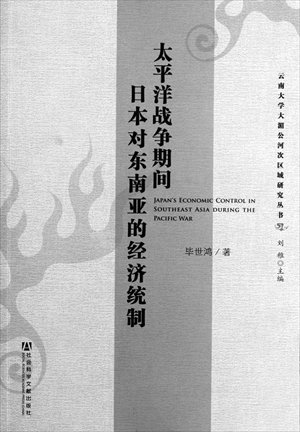Wartime history offers cautionary economic lesson on Japanese ties

As its territorial disputes with neighboring countries increase, Japan has been implementing a strategy of building ties with Southeast Asia, looking both to improve its political status in Asia and contain China by linking hands with Southeast Asian countries, especially those that have existing disputes with their giant neighbor.
At this time, a historical perspective on the interaction between Japan and Southeast Asian countries is important. Japan's Economic Control in Southeast Asia during the Pacific War, written by Bi Shihong, an associate professor at the School of International Studies of Yunnan University, offers a comprehensive survey of Japan's wartime economic history in the region.
According to Bi, Japan established ruling orders in Southeast Asia and brought this area into its capitalist economic circle. Through this, Southeast Asia became both a supplier and a market for dumping goods.
With policies implemented under imperial rule, Japan made Southeast Asia its economic subsidiary. Although Japan developed the local economy at that time to a certain extent, its main purpose was to meet its own economic needs.
Bi sees Japan's economic rule of the Southeast Asia as a part of Japan's comprehensive economic domination during wartime. The domination of Southeast Asia was aimed at controlling Southeast Asia's economic lifelines and making the region's economy an organic component of Japan's wartime economic system.
Even if Southeast Asia's economy developed under Japan's rule, it was still at the bottom tier of the whole system. This kind of development was very unstable. Japan's purpose, despite rhetoric promising co-prosperity and Asian brotherhood, was essentially to exploit the region for its own gain.
For some, this is suggestive of the current situation in Southeast Asia. Japan views Southeast Asia as a breakthrough point for its Asian diplomacy.
But Chinese analysts argue that joining hands with Southeast countries to contain China only meets Japan's short-term interests, and that this kind of action will restrict not only China, but also the whole of Asia.
Of course, direct parallels cannot be drawn between Japan's imperial rule and its efforts to build modern economic and political ties. Yet "those who cannot remember the past are doomed to repeat it," as Spanish philosopher George Santayana remarked.
A future of regional tension and outside influence will only hold back Southeast Asia's domestic development, and leave it trapped once again on the bottom rungs of the global economy.